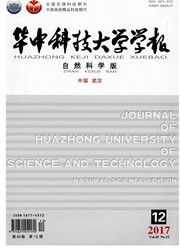

 中文摘要:
中文摘要:
提出了一种基于分布式空时码的非正交协作分集(DSTC—NOCD)系统.利用译码转发(DF)中继信道模型,推导了BPSK星座调制下系统误码率的理论值,并分析了协作用户上行信道和用户间信道质量对系统性能的影响.仿真结果表明:与直接传输系统相比,DSTC—NOCD系统能获得显著的性能增益,在用户间信道高信噪比条件下能获得完全分集增益;且在可接受的性能损失条件下能够获得比OCD系统更高的频谱效率.
 英文摘要:
英文摘要:
A distributed space-time coded non-orthogonal cooperative diversity (DSTC-NOCD) system was proposed. With the decode-and-forward (DF) relay channel model, theoretical bit error rate (BER) expression of BPSK signal was derived, and the effection of uplink and interuser channel qualities on system performance was investigated. Simulation results showed that the proposed DSTCNOCD system can offer substantial performance gain over direct transmission system and can access full diversity gain under high interuser channel signal-to-noise ratios (SNRs). Compared with the orthogonal cooperative diversity (OCD) system, the DSTC-NOCD system can achieve higher spectral efficiency with acceptable performance loss.
 同期刊论文项目
同期刊论文项目
 同项目期刊论文
同项目期刊论文
 The Periodic Half-width Microstrip Leaky-Wave Antenna with a Backward to Forward Scanning Capability
The Periodic Half-width Microstrip Leaky-Wave Antenna with a Backward to Forward Scanning Capability A New Time Domain Solution for the Multiple Diffraction of Spherical Waves by an Array of Nonperfect
A New Time Domain Solution for the Multiple Diffraction of Spherical Waves by an Array of Nonperfect Nonbinary LDPC codes constructed based on a cyclic MDS code and a low-complexity nonbinary message-p
Nonbinary LDPC codes constructed based on a cyclic MDS code and a low-complexity nonbinary message-p Linearly time-varying channel estimation and training power allocation for MIMOOFDM systems using su
Linearly time-varying channel estimation and training power allocation for MIMOOFDM systems using su Linearly Time-Varying Channel Estimation and Symbol Detection for OFDMA Uplink Using Superimposed Tr
Linearly Time-Varying Channel Estimation and Symbol Detection for OFDMA Uplink Using Superimposed Tr Optimal Estimation of Linearly Time-Varying MIMO/OFDM Channels Modeled by a Complex Exponential Basi
Optimal Estimation of Linearly Time-Varying MIMO/OFDM Channels Modeled by a Complex Exponential Basi 期刊信息
期刊信息
